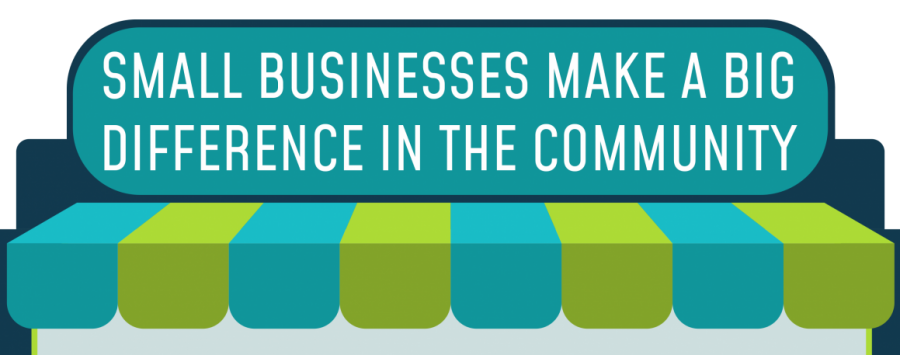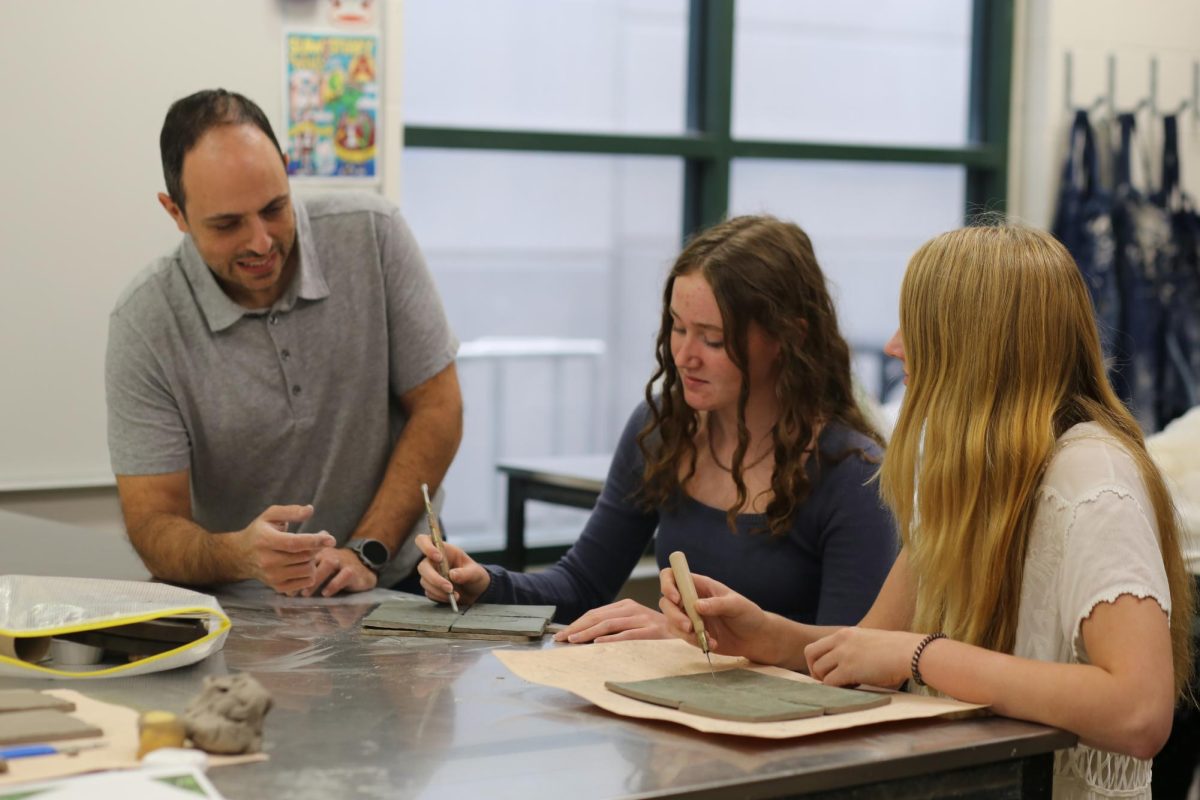An Amazon cart waits on a screen, laden with books that could also be purchased at the independent bookstore down the road. A student taps her fingers on the table, weighing the pros and cons of driving to the store. In the end, convenience wins and the student sits back, confident in Amazon’s two-day shipping.
Whether it’s because of lower prices or free shipping, large online retailers are continually growing larger and putting many smaller stores out of business. Even Barnes & Noble, a once giant corporation which put many independent bookstores out of business, is losing profits as eBooks and cheaper priced books grow more common. Yet, librarian Reba Gordon says that small businesses offer more than just products and deserve continued support.
“I think [small businesses] … create a more diverse marketspace,” Gordon said. “You have more people, more insight, more voices contributing to what it is that you can purchase and you are also helping your community. Amazon doesn’t live here. They’re not necessarily contributing or improving in terms of having activities or book signings or sponsoring events here, but a local bookstore is.”
When individuals shop, many factors go into choosing to purchase from local or large businesses whether it’s safety concerns with COVID-19, convenience or price. For some, shopping locally might not be the most practical choice.
“We used Kizzy Books and More for the Author Fest, and they sold a decent amount of books,” Gordon said. “I did hear from several people, and several parents, that they chose not to purchase from them because they could get free shipping from Amazon. So it just depends on what people are willing to exchange for convenience.”
Despite the multitude of advantages that large retailers offer, individuals can miss out on personal interaction and a greater sense of community when they don’t shop local.
“I think they [small businesses] compete with authenticity,” fine arts teacher and small business owner Irina Ashcraft said. “They are more relatable. … Small businesses usually have small staff, or a staff of one, so it’s very personal. If I shop at a small business, I usually know the owner. I can reach out to the owner and make a connection versus [with] a huge corporation, it’s hard to do.”
The COVID-19 pandemic only served to motivate more consumers to purchase items online, often from huge corporations. According to an article in Forbes, Amazon had an annual revenue of $386 billion in 2020, a 38% increase from 2019. At the same time, many small businesses struggled to stay afloat without in-person traffic or many of the events which were opportunities to advertise and connect with possible customers.
“I know how to paint but I don’t enjoy necessarily posting about myself online,” Ashcraft said. “But I have to overcome it in order to spread the word. … I was supposed to participate in the Winter Park Paint Out. … That went away last year completely, and this year it’s been pushed to later in the year. … So I had to reconsider my presence online [as] a new way to reach some customers.”
According to an article from the LA Times, although many small businesses suffered financially, way fewer than expected had to close permanently due to COVID-19. Part of this was due to federally funded stimulus packages which provided some relief.
“I think small businesses also have [the ability to] pivot; it’s harder to steer a huge ship,” Ashcraft said. “I am a one woman show. I can pivot very quickly. It might be an advantage which will keep [small businesses] around because they are going to respond faster.”
Ashcraft said that she believes that small businesses will stay around.
“With COVID, I know that some small businesses kind of suffered because there’s not a lot of financial backing,” Ashcraft said. “A small business a lot of times is operating on a shoestring budget, so that has been a challenge. But, I don’t think they will go extinct. I feel like the more people will appreciate and support those businesses, the more of them will survive and stick around.”
The best way to support local businesses is by purchasing from them, and, if that is not possible, spreading the word on social media about local stores. Gordon said that she usually discovers new local gems through social media, especially recently as she doesn’t travel as often due to COVID-19.
“I’ve certainly learned a lot about local businesses right now because of the push to help support our community through the pandemic,” Gordon said. “When I’m leaving my house, I do think it’s going to be more important and I feel more of a pull, like we’re all in this together, to support local businesses.”
















